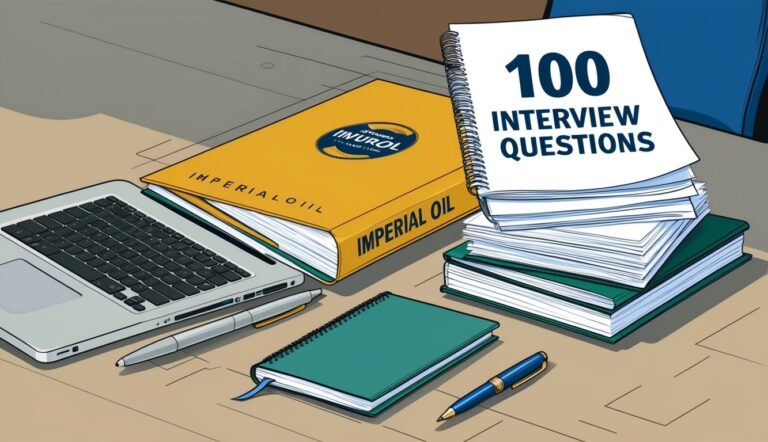55+ Job Interview Questions and Answers: Master Guide

Facing a job interview can be daunting, especially when you don’t know what questions to expect. To ease your worries, it’s key to be prepared with answers to common job interview questions. This post covers 55+ Job Interview Questions and Answers.
Let’s Begin..
Understanding what interviewers want to know can give you the confidence to make a great impression.

In this article, you’ll discover 55+ job interview questions and answers. These insights can help you highlight your strengths and show how you fit the role.
Knowing the right answers allows you to stand out from other candidates and demonstrate your readiness.
Interviews are opportunities to showcase your skills and experiences. By preparing beforehand, you can focus less on stress and more on sharing your story. This guide is designed to help you do just that.
Preparing for the Interview
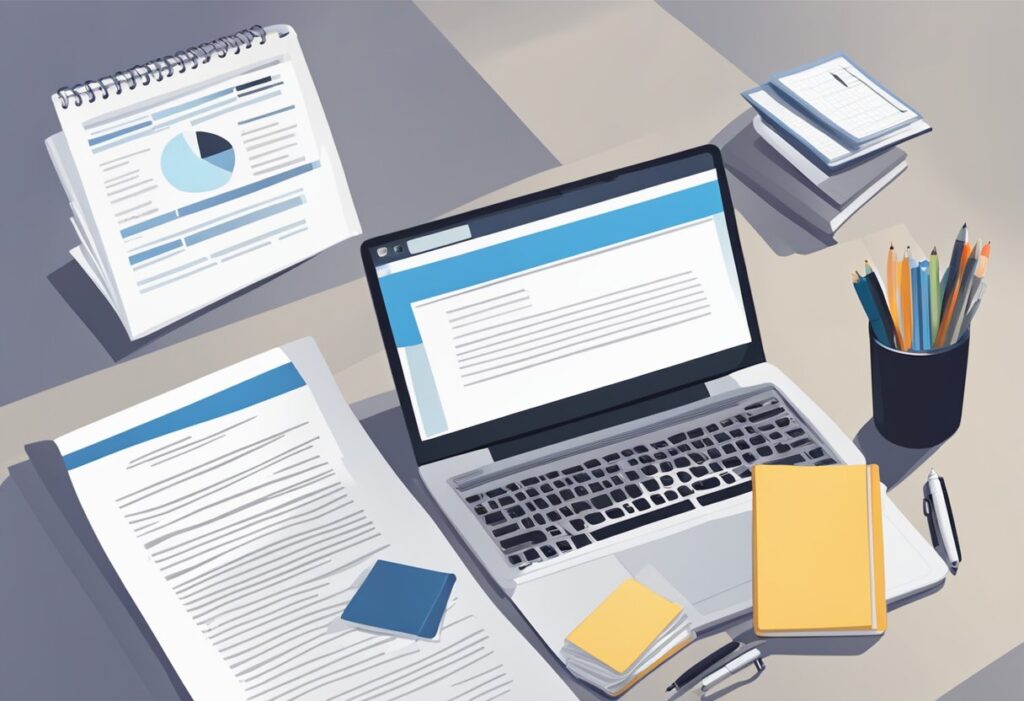
Getting ready for a job interview takes effort and preparation. Focus on knowing the company and practicing answers to common questions.
Practice Your Responses
Practicing your responses is vital for a successful interview. Start by reviewing the job responsibilities and qualifications. This helps you understand what the employer is looking for and how your skills align with the role.
Research the company to learn about its culture, values, and recent news. Use this information to tailor your answers and show that you’re well-prepared.
Next, gather common interview questions and prepare sample answers. Think about questions related to your experiences and skills. Practicing these can boost your confidence.
Consider conducting mock interviews with a friend or mentor to get feedback and improve.
General Interview Questions

In job interviews, certain questions help employers learn about your skills and personality. You’ll face questions about your background, work style, and communication abilities.
Tell Me About Yourself
When you’re asked to share about yourself, focus on your career and experiences related to the job. Start with your name and your professional background. Highlight key achievements and skills that match the job description.
Avoid personal details unrelated to work. Practice your response to keep it clear and concise. This question is a chance to make a positive first impression.
Discuss Your Work Experience
Talk about your previous jobs and the skills you developed. Mention any relevant projects or tasks that show your abilities. Use specific examples to show how you’ve contributed to past workplaces.
Employers want to see a connection between your history and the role you’re applying for. Be honest about your experience and focus on what you’ve learned and achieved.
Describe Your Work Ethic
Your work ethic shows how committed and reliable you are. Describe how you approach your tasks and meet deadlines. Mention any times you went above and beyond to complete a project.
Share examples that show your dedication, like staying late to finish a job or helping a teammate. Employers want people who are honest, responsible, and hardworking, so highlight those traits.
Communication Abilities
Good communication is crucial in most jobs. Describe how you share ideas, listen to others, and solve problems with teams. Talk about experiences where you clearly conveyed information or resolved conflicts.
Highlight any public speaking or presentation skills you have. Sharing examples of written communication, like reports or emails, can also be effective. Employers value clear and concise communication.
Leadership and Teamwork
Even if you’re not applying for a management position, leadership is important. Describe times when you led a project or helped a team succeed.
Talk about how you collaborate with others, sharing both leadership and teamwork experiences. Discuss any group projects where you played a key role. Employers look for people who can work well with others and lead when necessary.
Understanding Your Skills
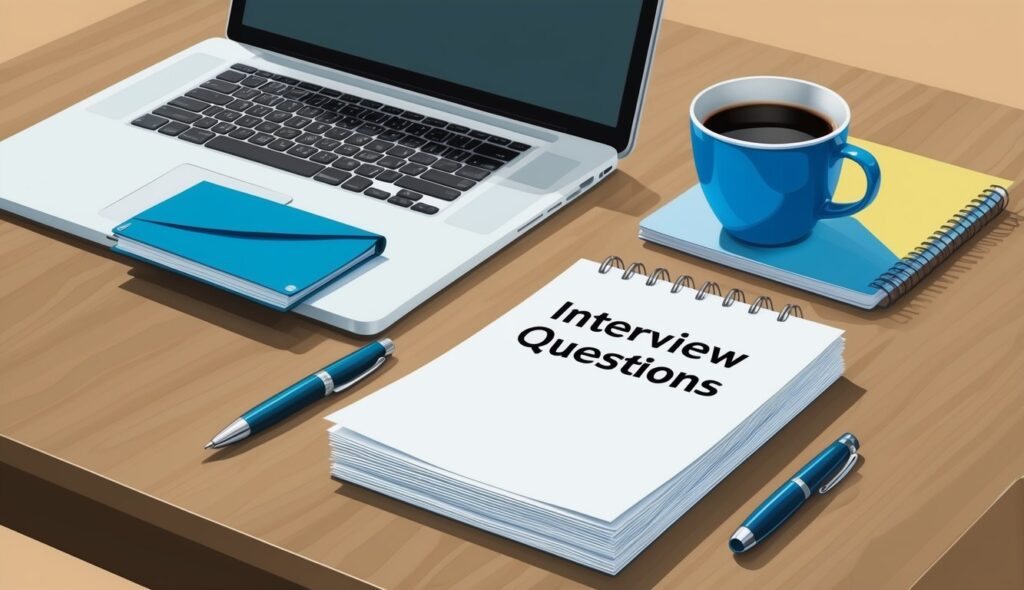
Knowing your skills helps you stand out in job interviews. It’s important to highlight your strengths like leadership, teamwork, and effective communication. Focus on strategic thinking to demonstrate your ability to solve problems in the workplace.
Problem-Solving and Strategic Thinking
When interviewing, you should clearly express your problem-solving abilities. This involves using logic to identify issues and then planning effective solutions. Discuss past experiences where your strategic thinking played a crucial role in overcoming challenges.
Demonstrating strong strategic thinking can be done by analyzing how you set goals and make decisions that benefit your team or organization. You might describe a situation where you foresaw potential obstacles and took proactive steps to avoid them. Show how you communicate your plans to others and collaborate to achieve success.
55+ Interview Questions and Answers
- What motivates you to succeed?
I am motivated by the opportunity to make a meaningful impact in everything I do. Whether it’s achieving a personal goal, helping my team succeed, or contributing to a larger project, knowing that my efforts lead to positive results drives me. I find fulfillment in overcoming challenges and continuously learning.
This keeps me engaged and eager to give my best in any situation, pushing me to grow both personally and professionally.
Additionally, I am inspired by the recognition of hard work and the chance to advance in my career. I enjoy setting and achieving ambitious goals, and the satisfaction of reaching those milestones is a significant motivator. Being part of a company or team that values growth and development aligns perfectly with my drive to succeed. - How do you handle stress and pressure?
I handle stress and pressure by staying organized and focusing on prioritizing tasks. When faced with tight deadlines or high expectations, I break down large projects into smaller, manageable steps and tackle them one by one.
This helps me stay focused and reduces the feeling of being overwhelmed. I also make use of tools like to-do lists or project management apps to keep track of deadlines and ensure I’m meeting all required objectives.
Additionally, I practice mindfulness techniques, such as deep breathing or taking short breaks to clear my mind, which helps me maintain a calm and focused demeanor under pressure. - Can you describe a challenge you faced and how you overcame it?
One significant challenge I faced was leading a project with a tight deadline and limited resources. The team was small, and we had to deliver high-quality results within a short time frame. To overcome this, I focused on clear communication and delegating tasks based on each team member’s strengths.
I also ensured we stayed organized by setting intermediate milestones to track our progress and adjusting our strategy when needed.
By maintaining a solution-oriented mindset and keeping the team motivated, we were able to meet the deadline successfully. The experience taught me the importance of adaptability and resourcefulness, and I learned how to stay calm under pressure while motivating others to perform their best in challenging situations. - Why do you want this job?
I am excited about this job because it aligns perfectly with both my skills and my career goals. After researching your company, I’m impressed by your commitment to innovation and the professional development opportunities you offer.
This role offers the opportunity to contribute to meaningful projects while continuing to grow and learn in a dynamic and collaborative environment. I believe my experience and passion for [relevant field or skill] will allow me to add value to your team.
Additionally, I am drawn to your company’s culture and values. Your focus on [mention specific values like teamwork, customer satisfaction, or community involvement] resonates with me, and I am eager to work in an environment that fosters both professional growth and positive social impact. - Where do you see yourself in five years?
In five years, I envision myself having grown within the organization, taking on more leadership responsibilities, and contributing significantly to its success. I hope to expand my expertise in [specific area] and use my skills to lead impactful projects.
My long-term goal is to develop in a role where I can mentor others and make a strategic impact on the company’s objectives. I am committed to continuous learning and am excited about the challenges and opportunities that will arise as I grow professionally. - What are your greatest strengths?
One of my greatest strengths is my ability to communicate effectively, both with colleagues and clients. I am able to convey complex ideas clearly and collaborate well with others, which helps in building strong working relationships and achieving team goals.
Additionally, I am highly organized and detail-oriented, which allows me to manage multiple tasks and deadlines efficiently. These strengths enable me to stay productive under pressure and deliver high-quality results consistently, while also maintaining a positive, team-oriented attitude. - What are your weaknesses?
One area I’m working on is being overly critical of my own work. I set high standards for myself and sometimes spend extra time refining details, which can delay the completion of tasks. However, I’ve been actively working on balancing perfectionism with efficiency by setting realistic goals and deadlines for myself.
I also seek feedback from colleagues to ensure I’m on the right track and to improve my work without overthinking every detail. This approach has helped me become more productive while still maintaining quality. - Why should we hire you?
I bring a unique combination of skills, experience, and enthusiasm that aligns perfectly with the requirements of this role.
My background in [relevant field/experience] has equipped me with the ability to [mention a specific skill or achievement], and I’m confident that I can apply these strengths to contribute to your team’s success.
Additionally, I’m highly adaptable and eager to learn, ensuring that I can grow within your organization and take on new challenges. My passion for [specific aspect of the job or company] also drives my commitment to delivering high-quality results, making me a valuable asset to your team. - Tell me about yourself.
I am a dedicated professional with [X] years of experience in [your field]. Over the years, I’ve developed strong skills in [mention key skills relevant to the role, e.g., communication, problem-solving, project management], and I am passionate about [aspect of the job or industry].
I thrive in collaborative environments where I can contribute to teams success and continuously learn from others. I’m always looking for ways to improve and challenge myself, which is why I’m excited about the opportunity to join your team.
Outside of work, I enjoy [brief personal interests or hobbies that may align with the company’s culture]. - What is your greatest achievement?
My greatest achievement was leading a project that resulted in a significant process improvement at my previous job. I identified inefficiencies in our workflow and took the initiative to propose a new system that streamlined operations, reduced processing time by X%, and saved the company both time and resources.
Not only did this project improve team productivity, but it also fostered collaboration across departments. This achievement highlighted my ability to identify problems, develop solutions, and lead a team toward successful implementation, all while maintaining a focus on achieving measurable outcomes. - How do you prioritize your work?
I prioritize my work by first identifying the most urgent and important tasks and breaking them down into smaller, manageable steps. I use tools like to-do lists and project management software to organize my tasks based on deadlines and their impact on overall goals.
I always tackle high-priority tasks that require immediate attention, while ensuring that less urgent tasks are not overlooked by scheduling time for them.
Additionally, I regularly assess and adjust my priorities to stay flexible and handle any unexpected changes or challenges that may arise. This approach allows me to stay organized and focused while meeting deadlines effectively. - Describe your ideal work environment.
My ideal work environment is one that is collaborative, supportive, and open communication. I thrive in spaces where team members share ideas freely, and feedback is constructive, which helps everyone grow.
I value a workplace that encourages innovation and allows for creativity, while also maintaining clear goals and expectations. A positive, inclusive culture that recognizes and celebrates individual contributions, while also promoting work-life balance, is essential for maintaining motivation and productivity.
I believe that when employees feel valued and supported, they can perform at their best and contribute to the success of the organization. - How do you handle criticism?
I handle criticism with an open mind and view it as an opportunity for growth. When I receive feedback, I listen carefully, ask clarifying questions if needed, and focus on understanding the perspective behind it. I make sure to reflect on the feedback and identify areas where I can improve.
If it’s constructive criticism, I take it as a chance to develop my skills further. I appreciate when others take the time to help me improve, and I strive to implement their suggestions in my work to continually grow and perform at a higher level. - What do you know about our company?
I’ve researched your company and I’m impressed by your commitment to [mention specific company values, services, or initiatives].
I understand that your company has a strong reputation for [specific achievements or characteristics, such as innovation, customer service, sustainability], and I’m excited about the opportunity to contribute to that success. - How do you work in a team?
I thrive in a team environment by being a collaborative and supportive team player. I believe in open communication, where everyone’s ideas and feedback are valued, and I actively listen to my teammates. I make an effort to contribute my skills and knowledge while being flexible and ready to assist others when needed.
I also value constructive feedback and believe in using it to improve both individually and as a team. By fostering a positive, inclusive atmosphere and encouraging teamwork, I help ensure that our collective goals are achieved efficiently and effectively. - What makes you unique?
What makes me unique is my ability to think creatively while also being practical. I enjoy finding new solutions to problems and can adapt quickly to changing situations. I’m also a good communicator, which helps me work well with others and make sure everyone is on the same page.
My mix of creativity, problem-solving, and teamwork allows me to contribute effectively to any project or team. - How do you handle conflict at work?
When handling conflict at work, I focus on staying calm and listening to all perspectives. I believe in addressing issues early to prevent them from escalating and approach the situation with an open mind and respect for others’ viewpoints.
I try to find common ground by focusing on the problem, not personal differences, and work towards a solution that benefits everyone involved. If needed, I’m comfortable seeking guidance from a manager or HR to ensure the conflict is resolved in a fair and professional manner. - Describe your work style.
My work style is organized and proactive. I like to plan my tasks ahead of time and break them down into manageable steps, which helps me stay on track and meet deadlines. I’m adaptable and open to adjusting my approach if new challenges arise.
I enjoy working in teams and value open communication, ensuring that everyone is aligned and working towards common goals. - How do you stay organized?
I stay organized by using a combination of digital tools and traditional methods. I rely on task management apps like [mention some app that you use] to prioritize tasks, set deadlines, and track progress.
I also make to-do lists at the start of each day to ensure I stay focused on the most important tasks. I break down larger projects into smaller, manageable steps, which helps me stay on top of deadlines and prevents last-minute stress. Additionally, I keep a clean workspace and regularly review my tasks to adjust priorities as needed. - What skills do you bring to this job?
I am highly organized, which helps me manage multiple tasks and meet deadlines without compromising quality. Additionally, I have experience in [mention relevant software, tools, or industry knowledge], which will enable me to quickly contribute to your projects.
My adaptability and problem-solving skills ensure I can handle challenges efficiently and continue to learn and grow within the role. - Can you work under tight deadlines?
Yes, I can work under tight deadlines. In fact, I thrive in fast-paced environments where efficiency and time management are key. I prioritize tasks effectively, stay organized, and focus on delivering quality results, even when the pressure is on.
My ability to stay calm under pressure and adapt quickly allows me to meet deadlines while maintaining a high standard of work. - What do you enjoy about your current job?
What I enjoy most about my current job is the opportunity to continuously learn and grow. I appreciate the challenges that come with the role, as they push me to expand my skills and think creatively.
Additionally, I find satisfaction in collaborating with a team, sharing ideas, and contributing to projects that make a real impact. The dynamic nature of the job keeps me engaged, and seeing the results of my hard work motivates me to keep striving for excellence. - Why are you leaving your current job?
I am leaving my current job to seek new challenges and opportunities for professional growth. While I have gained valuable experience and developed important skills in my current role, I feel that I’ve reached a point where I can no longer expand my abilities within the company.
I am looking for a position that offers more responsibility, the chance to work on diverse projects, and a work environment that aligns with my long-term career goals. I am excited about the potential to contribute in new ways and further develop my expertise. - Describe a difficult decision you made.
One difficult decision I had to make was choosing between two job offers with different opportunities for growth. One offer provided stability in a familiar environment, while the other presented a more challenging role in a new industry.
After careful consideration, I decided to pursue the opportunity that offered more potential for learning and long-term career advancement. Although it was a tough decision to leave behind the security of my previous job, I ultimately chose the path that aligned better with my personal and professional goals.
This decision allowed me to grow in ways I hadn’t imagined and reinforced the importance of embracing challenges. - How do you stay motivated?
I stay motivated by setting clear, achievable goals and focusing on the progress I’m making toward them. I break larger tasks into smaller steps, which helps maintain a sense of accomplishment along the way. Additionally, I stay inspired by reminding myself of the bigger picture—whether it’s personal development or contributing to a team’s success.
I also find motivation in seeking feedback and learning from both successes and setbacks, as it fuels my desire to keep improving. Staying connected with my passion for the work and the impact it has keeps me driven and focused. - What are your career goals?
My career goals are to continue developing my skills and expertise in my field, taking on increasingly complex and impactful projects.
In the short term, I aim to contribute meaningfully to the success of the team and organization, while gaining deeper knowledge and experience.
In the long term, I aspire to take on leadership responsibilities, where I can mentor others, drive innovation, and contribute to the strategic direction of the company. Ultimately, I want to build a career that challenges me, offers opportunities for growth, and allows me to make a lasting impact in my industry. - Who has influenced you the most?
The person who has influenced me the most is my [mentor/parent/role model], who taught me the importance of perseverance, hard work, and integrity.
Their ability to remain focused and calm in challenging situations inspired me to approach my own challenges with a positive mindset. They also emphasized the value of continuous learning and adapting to change, which has shaped my approach to both my personal and professional life.
Their guidance has not only helped me navigate my career but also instilled a strong sense of responsibility and the desire to help others along the way. - How do you keep learning in your field?
I keep learning in my field by staying up-to-date with the latest industry trends, attending relevant workshops and conferences, and seeking out online courses or certifications to expand my knowledge. I also make it a point to network with professionals in my industry to exchange ideas and learn from their experiences.
Reading books, articles, and case studies related to my field helps me stay informed, while actively seeking feedback from colleagues and mentors allows me to continuously improve. I believe that ongoing learning is key to staying competitive and growing in any career. - What would you do in your first 30 days here?
In my first 30 days, I would focus on understanding the company culture, team dynamics, and the specific goals and challenges of the role. I would start by meeting with key team members to build relationships, ask questions, and gain insights into ongoing projects.
I would take the time to learn the company’s processes, systems, and tools, ensuring I’m aligned with how things are done.
Additionally, I’d prioritize identifying areas where I can quickly add value, whether it’s improving workflows or contributing to current projects, while laying the foundation for long-term success. My goal would be to build a strong understanding of the organization and start contributing meaningfully from day one. - Tell me about a successful project.
One successful project I worked on involved leading a team to launch a new product feature within a tight deadline. We started by gathering customer feedback to understand their needs, then collaborated closely across departments—design, marketing, and engineering—to ensure we were all aligned.
My role was to manage the project timeline, ensure clear communication, and tackle any obstacles that arose. Despite a few challenges, such as unexpected technical issues, we stayed focused and adapted quickly.
The product feature was launched on time and received positive feedback, increasing user engagement by X%. It was a great example of teamwork, effective planning, and problem-solving under pressure. - When have you failed?
One instance when I faced failure was during a project where I underestimated the amount of time required to complete a crucial task.
As a result, the project fell behind schedule, and we missed an important deadline. While it was a setback, I took full responsibility and analyzed the situation to understand where I went wrong.
I implemented better time management practices moving forward, including setting more realistic timelines and incorporating buffer periods for unforeseen delays. The experience taught me the importance of planning ahead and maintaining flexibility, and it ultimately helped me become more organized and proactive in future projects. - What would others say about you?
Others would likely describe me as a reliable, collaborative, and results-driven individual. I strive to be a team player, always willing to offer support and share ideas to help achieve common goals.
People who have worked with me often highlight my strong work ethic and ability to stay focused under pressure.
They would also mention my positive attitude and willingness to take on new challenges, as well as my openness to feedback and continuous improvement. Overall, I aim to be someone who contributes positively to the team dynamic and helps create an environment where everyone can succeed. - How do you handle mistakes?
When I make a mistake, I take responsibility for it and view it as an opportunity to learn and grow. First, I assess what went wrong and identify the root cause, whether it’s a lapse in judgment, lack of information, or miscommunication.
Then, I take corrective action to fix the immediate issue, if possible, and communicate with anyone affected. Moving forward, I focus on implementing changes or new strategies to prevent similar mistakes, ensuring continuous improvement.
I believe that handling mistakes with accountability and a proactive mindset is key to personal and professional growth. - What are your salary expectations?
My salary expectations are based on the industry standard for this role, as well as my skills, experience, and the responsibilities of the position.
I’m looking for a compensation package that reflects my qualifications and the value I can bring to the company. However, I am open to discussion and would be happy to learn more about the overall benefits and opportunities for growth within the company.
My main priority is finding a position that aligns with my career goals and offers the chance for long-term development. - How do you manage your time?
I manage my time by prioritizing tasks based on their urgency and importance. I start by creating a to-do list and breaking larger tasks into smaller, manageable steps. I also use tools like calendars and project management apps to keep track of deadlines and set reminders. To stay focused, I minimize distractions and allocate specific time blocks for deep work.
I regularly review my progress to adjust my schedule as needed, ensuring I stay on track.
Additionally, I allow some flexibility in my plan to accommodate unexpected changes or new priorities. This approach helps me stay organized and efficient while meeting deadlines. - What do you like about this industry?
- Describe a typical day at your last job.
- How do you handle repetitive tasks?
- What do you expect from a manager?
- What are you passionate about?
- How do you handle change?
- Describe a time you exceeded expectations.
- How do you define success?
- What makes a good team leader?
- Tell me about a time you disagreed with a coworker.
- What tools do you use to stay productive?
- How do you keep up with industry trends?
- What is your greatest fear in a job?
- How do you make important decisions?
- Tell me about your education.
- What do you do outside of work?
- Describe your best boss.
- How do you handle multitasking?
- Why did you choose this profession?
- What is the most difficult problem you’ve solved?
Behavioral Interview Questions
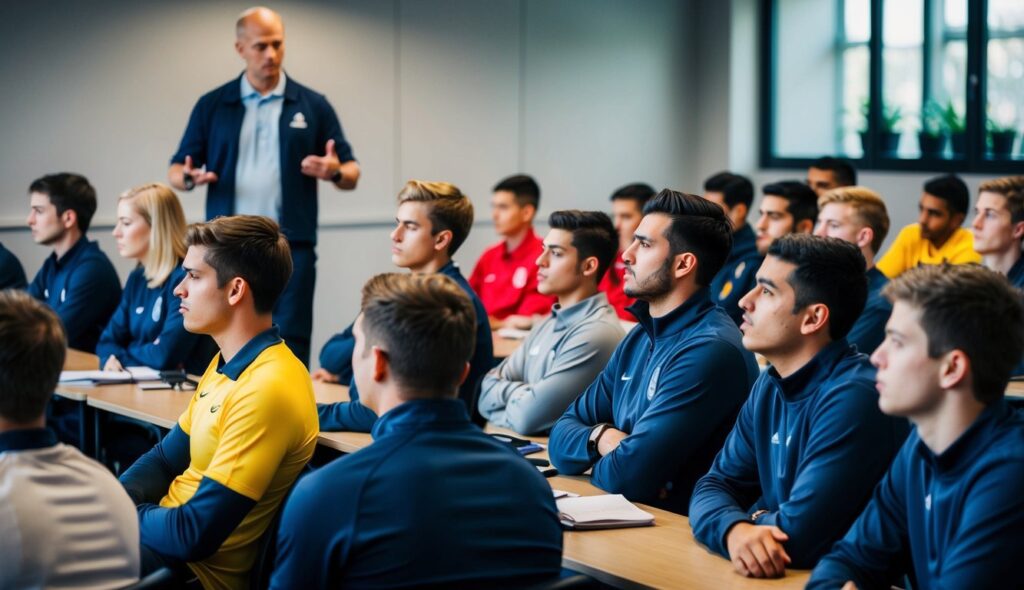
Behavioral interview questions explore how you handled situations in the past. These questions help reveal skills like customer service, self-awareness, and ambition. They also provide insight into your professional experience, focusing on how you’ve developed these traits over time.
Customer Service Orientation
When asked about customer service, think of situations that show how you handled challenging customers. Your answer should demonstrate patience, problem-solving, and effective communication.
For example, you might describe a time when you resolved a conflict by listening carefully and addressing a customer’s concerns. Highlight how you turned a dissatisfied customer into a satisfied one. This shows your ability to understand customer needs and maintain a positive reputation for your company.
Frequently Asked Questions
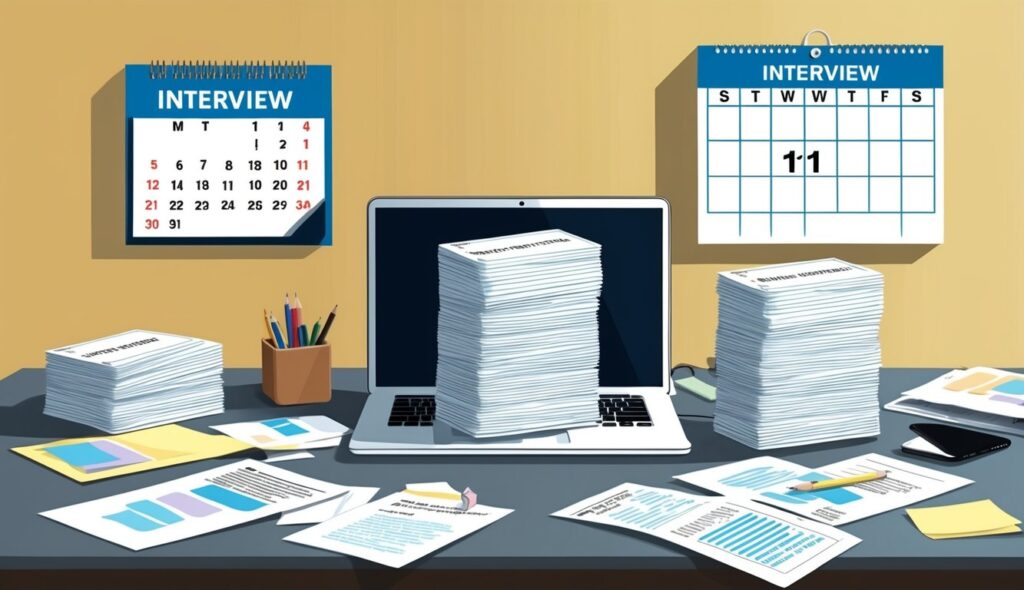
When preparing for an interview, it’s important to reflect on how your experiences and skills align with the role. Understanding how you handle work challenges, demonstrate leadership, and fit into team dynamics can give you an edge.
How do you handle challenging situations at work?
Think about a time when you faced a significant obstacle. Explain the situation clearly and detail how you resolved it. Focus on your problem-solving skills and ability to remain calm under pressure.
Can you describe a time when you demonstrated leadership skills?
Pick an example where you took charge. Explain what the project or situation was, your role, and how your leadership contributed to success. Highlight qualities like decision-making and communication.
Why are you interested in this position with our company?
Be specific about what attracts you to the role and the company. Mention values, goals, or projects that resonate with you. Show that you’ve researched and understand the company’s mission and culture.

How would you describe your work style and how it fits with our team dynamic?
Reflect on your personal work habits. Are you detail-oriented, or innovative? Match these traits with how the team operates. This demonstrates your ability to integrate well with others.
What can you contribute to this company that makes you stand out from other candidates?
Highlight your unique skills or experiences that directly benefit the company. Discuss accomplishments that show success and a willingness to learn or adapt. Make it clear what sets you apart.
How do you prioritize your tasks when dealing with multiple deadlines?
Explain your method for managing tasks. Is it a list, digital tool, or specific strategy? Talk about how you decide what requires immediate attention and how you stay organized to meet deadlines effectively.
All the Best !


